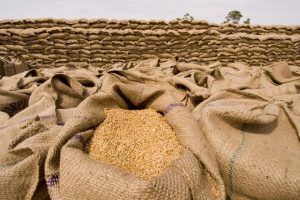News
Government Aims To Set Up Food Quality Control Mechanisms To Check On Certification
Food trade is a core process for every country, and import export criteria has been rising over the years. In a move to prevent rejections from the importing countries, and to ensure that the food products exported by India is of good quality, the government is planning to set up a quality control mechanism. This is being put in place to check on the certification requirement of the importing country.
A K Gupta, advisor, Agricultural and Processed Food Products Export Development Authority (APEDA), said, “The ministry of commerce has asked to keep a check on exports of processed products.”
The Aim Of The Regulations
The government intends to initiate a study to come up with a set of regulations aimed at preventing rejection of exported goods on foreign soil. These regulations, once in place, will contain various checks in the pre-shipment stage so that exports to countries where a certification is required may be stopped if deemed necessary.
“There are more food products like squashes, ketchups, fruit juices, fruit pulp and pickles, which will also be under check once such a regulation is ready. This will bring down the number of rejections in the category of fruits, vegetables and processed foods,” he said.
Hygiene And Sanitation Certfication
P Vijayaraghavan, chief executive officer, Lawrencedale Agro Processing India (P) Ltd, and an exporter of exotic vegetables, said, “We are regular exporters to the Gulf nations. Some of the nations in the European Union (EU) demand for certifications of hygiene and quality like phytosanitary certificates. APEDA has already made exports aware in this regard in the year 2012 when it issued the types of certifications required.
The Indian Council for Research on International Economic Relations (ICRIER) has been working to identify sanitary and phyto-sanitary (SPS) barriers faced by the Indian exporters in the EU markets with respect to agriculture and processed produce focusing on selected products like mangoes, grapes, basmati rice, peanut and peanut products, mushroom, green peas, beans, dairy products and eggplant.
These certifications have been put in place for a few reasons, which include ensuring the quality of the exported products, and to help encourage exporters to follow good manufacturing practices and good hygiene practices in their manufacturing units.










